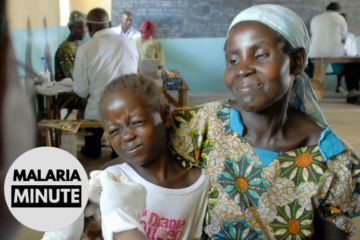The Latest Malaria News, in 60 Seconds.
The Molecular Approaches to Malaria Conference takes place in Australia, and a study into the long-term side effects of antimalarials could not identify any sufficient evidence of association between malaria prophylaxis and adverse health effects.
Malaria Minute on iTunes and Spotify
Transcript:
Australia was home to the Molecular Approaches to Malaria conference this week, with delegates from around the world convening to share research into the different life-cycle stages of malaria. Among the speakers was Professor Karen Day of the University of Melbourne. She spoke about human immunity to P. falciparum var genes, which are a group of proteins that are expressed on the surface of malaria-infected red blood cells. The malaria parasite can change which protein is expressed, allowing it to avoid being detected by the immune system. Professor Day spoke of how it’s impossible to develop immunity to all sixty var gene variants, even over the course of a lifetime.
And a study into the long-term side effects of antimalarial drugs could not identify any sufficient evidence of association between malaria prophylaxis and adverse health effects. It suggests that further research is needed to fully and more accurately assess the possibility of persistent and latent adverse health effects.
Sources:
Molecular Approaches to Malaria Conference
Assessment of Long-Term Health Effects of Antimalarial Drugs When Used for Prophylaxis
Image Credits: Ronan Mellin [Twitter]
Scientific Advisor: Katharine Collins, Radboud University Medical Centre


